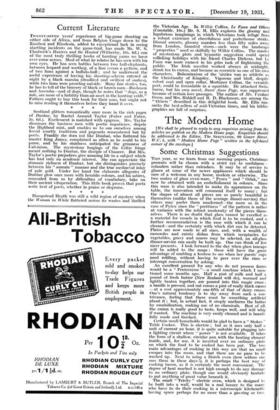Scotland glitters romantically once more in the rich pages of
Dunbar, by Rachel Annand Taylor (Faber and Faber, 8s. 6d.). Excitement is matched with epigram. Mrs. Taylor dismisses the business men with poetic impatience, dispels the Highland mist, and enables us to sun ourselves among fervid courtly traditions and pageants remembered but by poets. Frankly she does not like Dunbar, who flattered his master King James, complained as often as he could to his purse, and by his staidness anticipated the grimness of Calvinism. The mysterious longings of the Celtic fringe meant nothing to Dunbar, the disciple of Chaucer. But Mrs. Taylor's poetic prejudices give amazing life to a subject which has had only an academic interest. She can appreciate the stanzaic richness of Dunbar, but she distinguishes precisely between his " aureate " manner and the true mediaeval inlay of pale gold. Under her hand the elaborate allegories of Dunbar glow once more with heraldic colours, and his satires, concealed from us by difficulties of vocabulary, take on their ancient vituperation. This little book proves that poets write best of poets, whether in praise or dispraise.


































 Previous page
Previous page